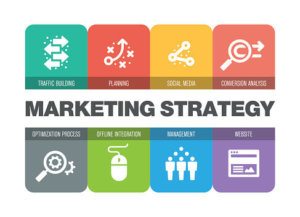One of the challenges of creating a solid marketing strategy is choosing the right objectives for your team to pursue. It may be difficult to pinpoint an exact endpoint for a project if you are unfamiliar with the process. A wrong decision can cripple months of hard work. To ensure that your campaigns are always on the right path, consider setting SMART goals for your projects.
What are SMART Goals?
Goals are a necessity of marketing campaigns. They give you something to work towards so that you always keep your eye on the prize.
Without them, you sacrifice the ability to gauge the efficiency of your work. Moreover, goals aren’t always right just because you choose them. They can often be misguided and sometimes even unfeasible if you aren’t careful.
That’s why the marketing industry has seen a significant push towards adopting SMART goals to ensure that their objectives are always up to standard. However, SMART is only an acronym. It stands for:
- Specific
- Measurable
- Attainable
- Realistic
- Timely
Each letter represents a different benchmark that your marketing strategy should follow. These conditions are the result of years of experience accumulated by marketing professionals who found success with their use.

How SMART Goals Shape a Successful Marketing Strategy
Specific
First of all, any goal you choose should be specific, as opposed to one that is broad and undefined. Sweeping objectives don’t dictate the exact actions and procedures that must take place in order to be successful. A specific goal not only defines a clear-cut objective for the end of your marketing plan; it also illustrates the steps and personnel needed so that your whole team is always on the same page.
Measurable
It should go without saying, but make sure that all of your goals are measurable. This guarantees that you can assess your progress along the way to ensure that you’re always on the right path. Measurable objectives also provide you with a finite endpoint so you always know when your project is complete.

Attainable
If you’re looking to achieve every goal you set, it’s best to avoid ones that are unattainable. Every objective you set for yourself should be entirely plausible and within your capacity. Otherwise, you’ll just be setting yourself up for failure.
Realistic
Sometimes, a goal can be attainable but not entirely realistic. To ensure that both conditions are met, consider all of your personnel and resources. Do they have the tools to allow you to complete this goal? If not, you may need to shift your marketing strategy to an objective that is more realistic.

Time-bound
Lastly, set a precise time limit on your objectives. If there are different steps along the way that correspond to certain dates, clearly outline them in your strategy. Otherwise, a flexible timeline might not motivate you to get your project done in a timely manner. Remember, your deadline should be far enough away for you to complete your project soundly.
If you put these SMART goals into practice, you will be exponentially improving the quality of your marketing strategy.


